What to know before upgrading your embroidery machine
If you’re like most people, then you likely started with a budget embroidery machine. Something with a small embroidery area, possibly even an older, used model.
So, if you’re now in the position to upgrade – congrats! BUT, don’t jump just yet! There are a few things you should think about first.
Are Starting or expanding an embroidery business?
This should honestly be the first question you ask yourself. If the answer is yes, then a multi-needle embroidery machine is likely the way to go.
A multi-needle is often faster, more efficient, and has better longevity than a flat-bed machine.
Depending on which machine you get, you’ll also be able to embroider on things that flat-bed machines can only dream of, like structured hats, shoes, and bulky bags.


However, these premium features come with a premium price tag, and multi-needle machines start at just shy of $4,000. But, if you’re serious about growing your embroidery business, it’s worth it.
With a multi-needle, you’ll not only get a much larger embroidery area and expanded production capabilities, but you also won’t have to re-thread every time your design changes colors!
This is a huge time saver, and if you’re going to be filling big orders of the same design, it’s a must-have feature in my opinion.
Should you buy a cheaper multi-needle?
There’s a BIG difference between budget and higher priced multi-needles. But, if you don’t need all the features of a higher price machine you can save a LOT of money.
For example, the Elna940 is the cheapest multi-needle, coming in at just under $4,000. But, it is still a flat-bed. This means that it does not have the required attachments to embroider on flex-fit hats or bulky items.
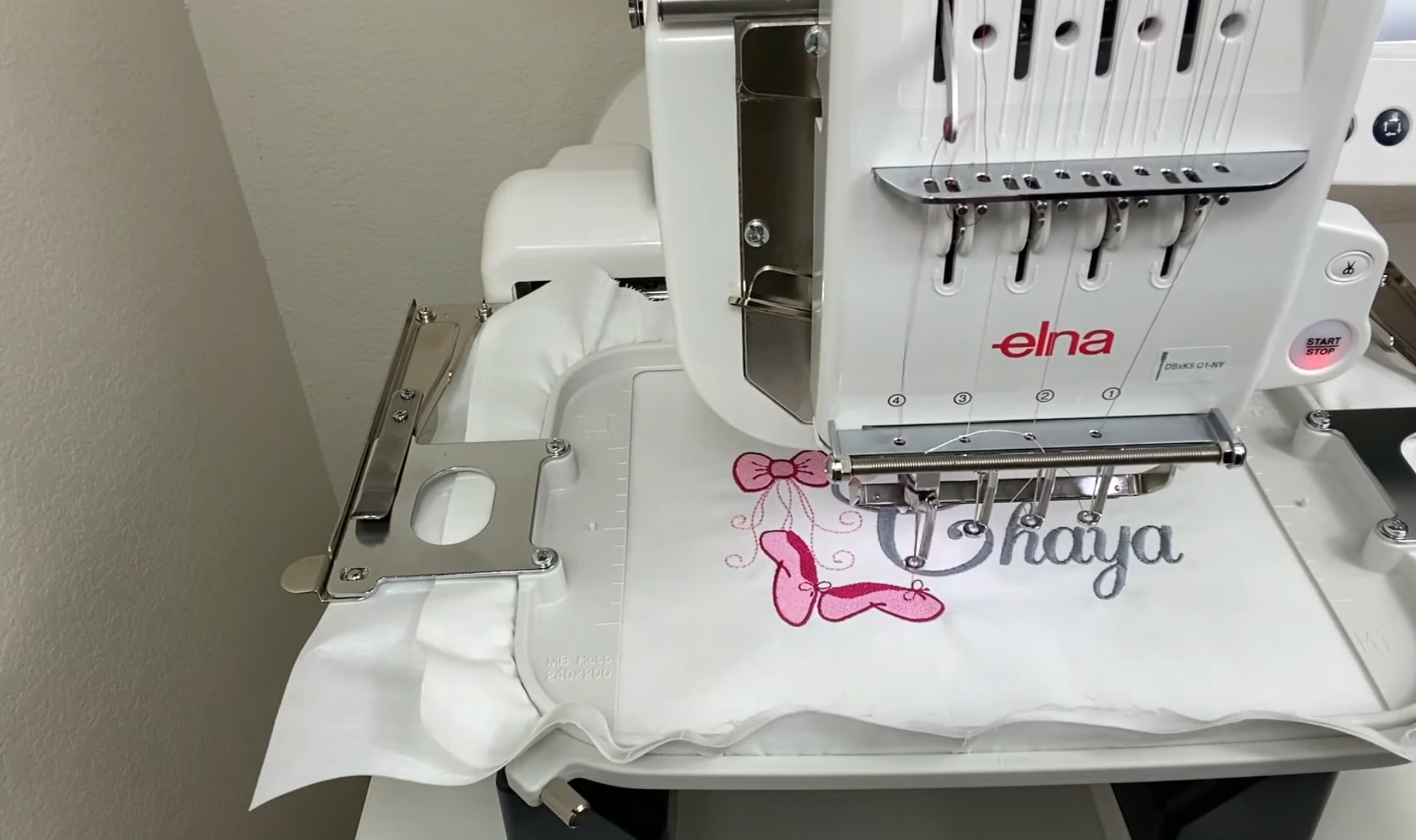

However, if you plan to only sell flat items, such as t-shirts, blankets, or sweatshirts, this can be a great choice that will save you a lot of money.
For reference, the cheapest multi-needle that has a cap driver and free arm is the SWF12, which is a great machine, but costs substantially more at $8,999.
I think the SWF 12 offers the absolute best bang for your buck of any multi-needle due to its features and included accessories, including a free cap driver.
This accessory is $500 to $1500 by itself with other machines! But, if you won’t ever make caps – do you really need this type of machine?
That’s up to you, but it’s important to think about the future growth of your business as well.
My Multi-Needle Embroidery Machine Picks
SWF 12 (Best Value)
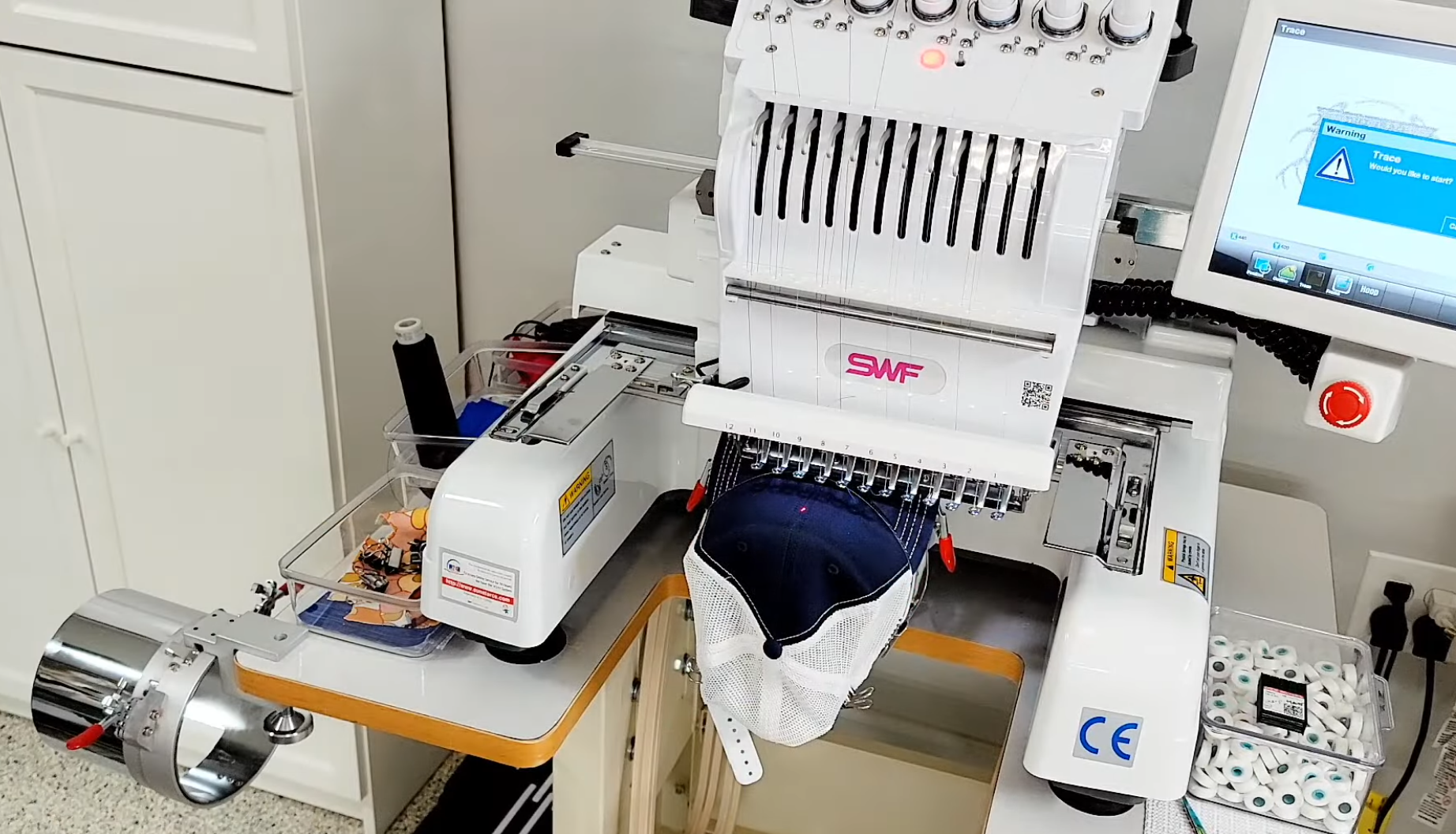
Tajima Sai (Best Quality)
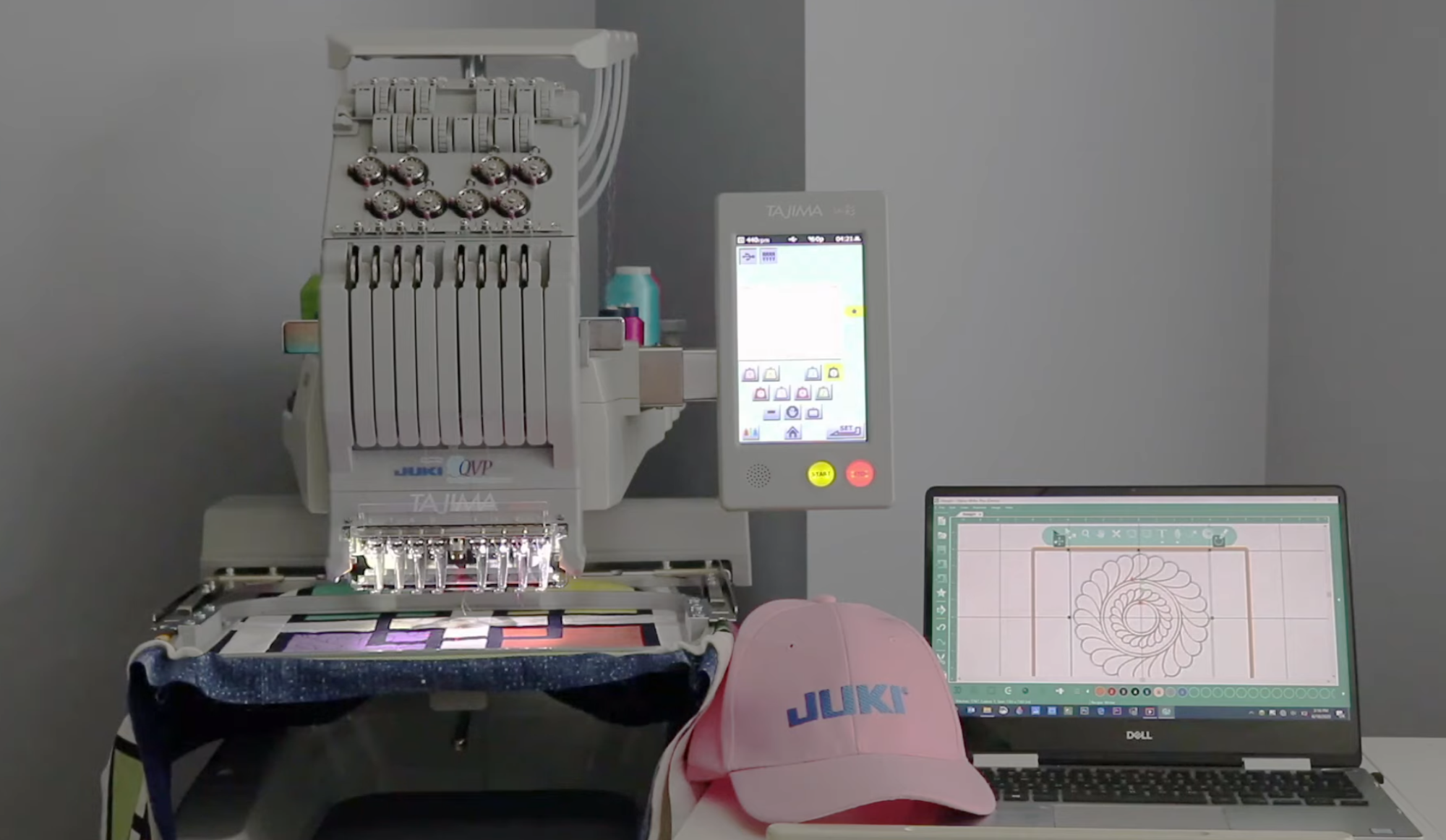
Elna 940 (Budget Pick)

Do you always need a multi-needle? No. If you mainly customize one-off items, then a multi-needle may not be necessary.
The main benefit of a multi-needle machine is that it makes it faster to make multiples of the same design over and over in less time.
However, if you DO still need free arm capabilities, most single needle machines with these capabilities, such as the Brother PRS100 still come in at around $4,500. So, keep that in mind.
Are you buying a future-ready machine?
Everyone wants to save money, but it shouldn’t come at the cost of their future aspirations.
Will the machine you’re planning to buy last you for years to come, or will you need to trade it in six months from now for a different machine, because it didn’t really fit your needs?
When you upgrade, you’ll want to buy the biggest hoop size you can afford. You really can’t have an embroidery area that’s “too big”. But, I’d recommend at least a 8″ x 8″ so you won’t feel limited later.
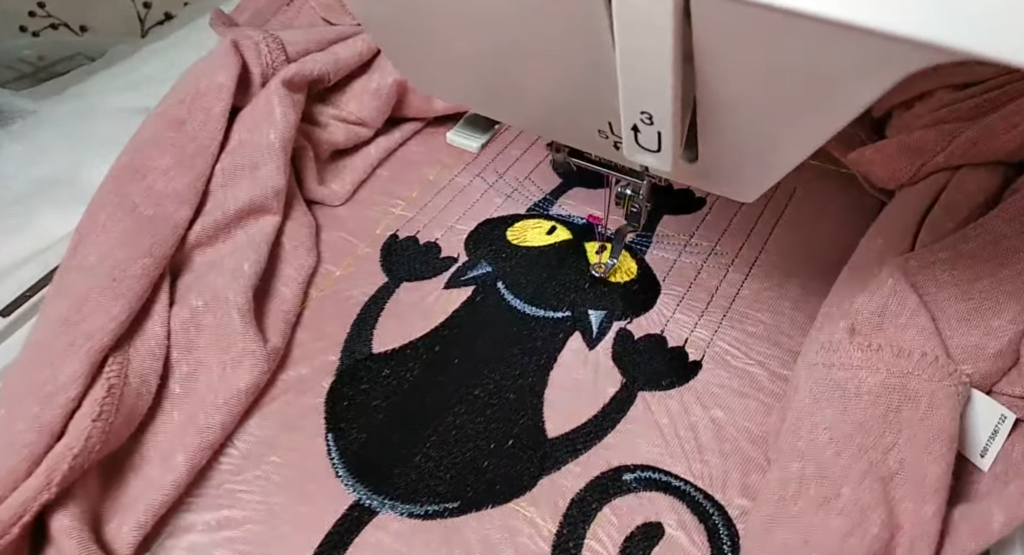
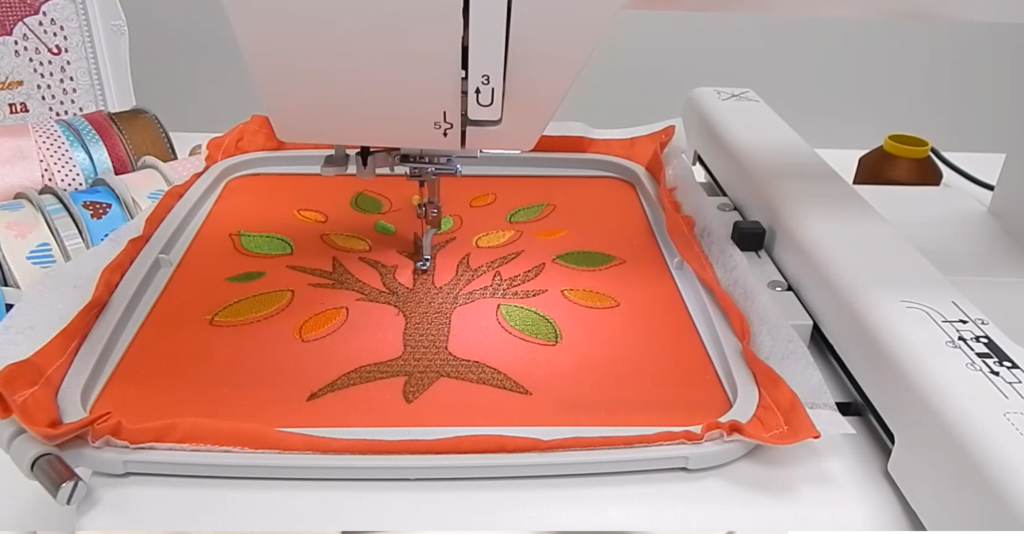
And, again, the type of projects you want to take on in the future will dictate the type of machine you buy and how much you’ll want to budget for it.
While there’s nothing wrong with flatbed machines, they will struggle in certain areas. This is not limited to hats, and if you want to do something like, say, create intricate designs on sleeves for costumes, or custom sweatshirts, then a free arm machine will be a must, which greatly adds to the cost.
If you need a recommendation, check my list below. The 500E is an exceptional machine with a large embroidery area at a fair price, but if it’s outside your budget you can try the 400E.
It’s nearly identical feature-wise, but the embroidery area is a bit smaller. If you think you need a free arm machine, then the PRS100 is the cheapest way to get this feature, at $4,500.
Janome 500E
(Biggest embroidery area)
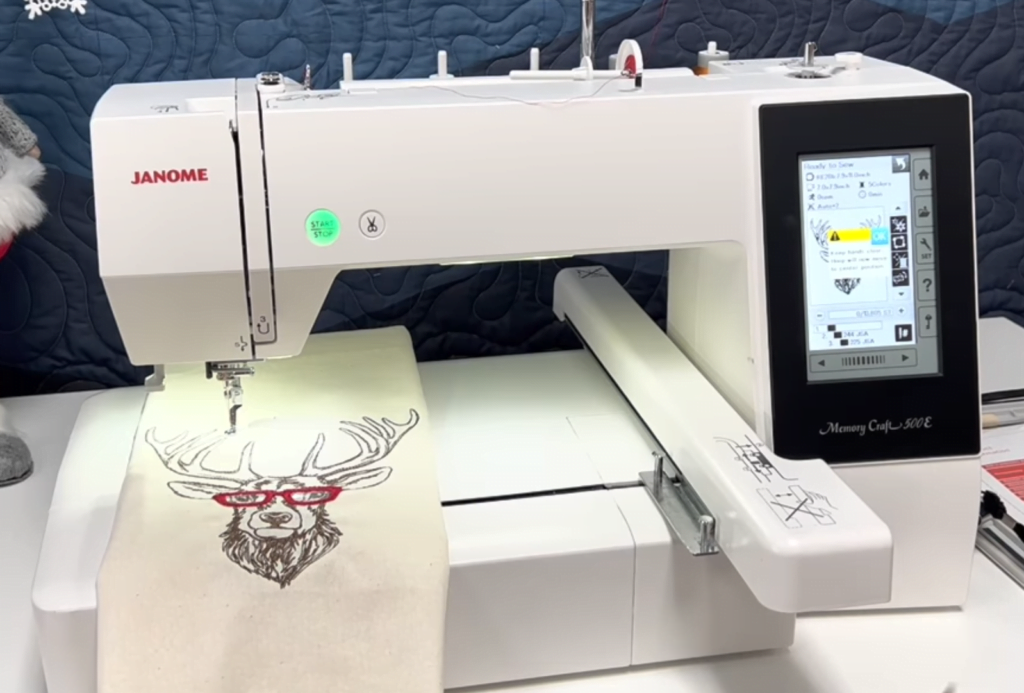
8″ x 11″
Brother PRS100
(Free arm + cap driver)
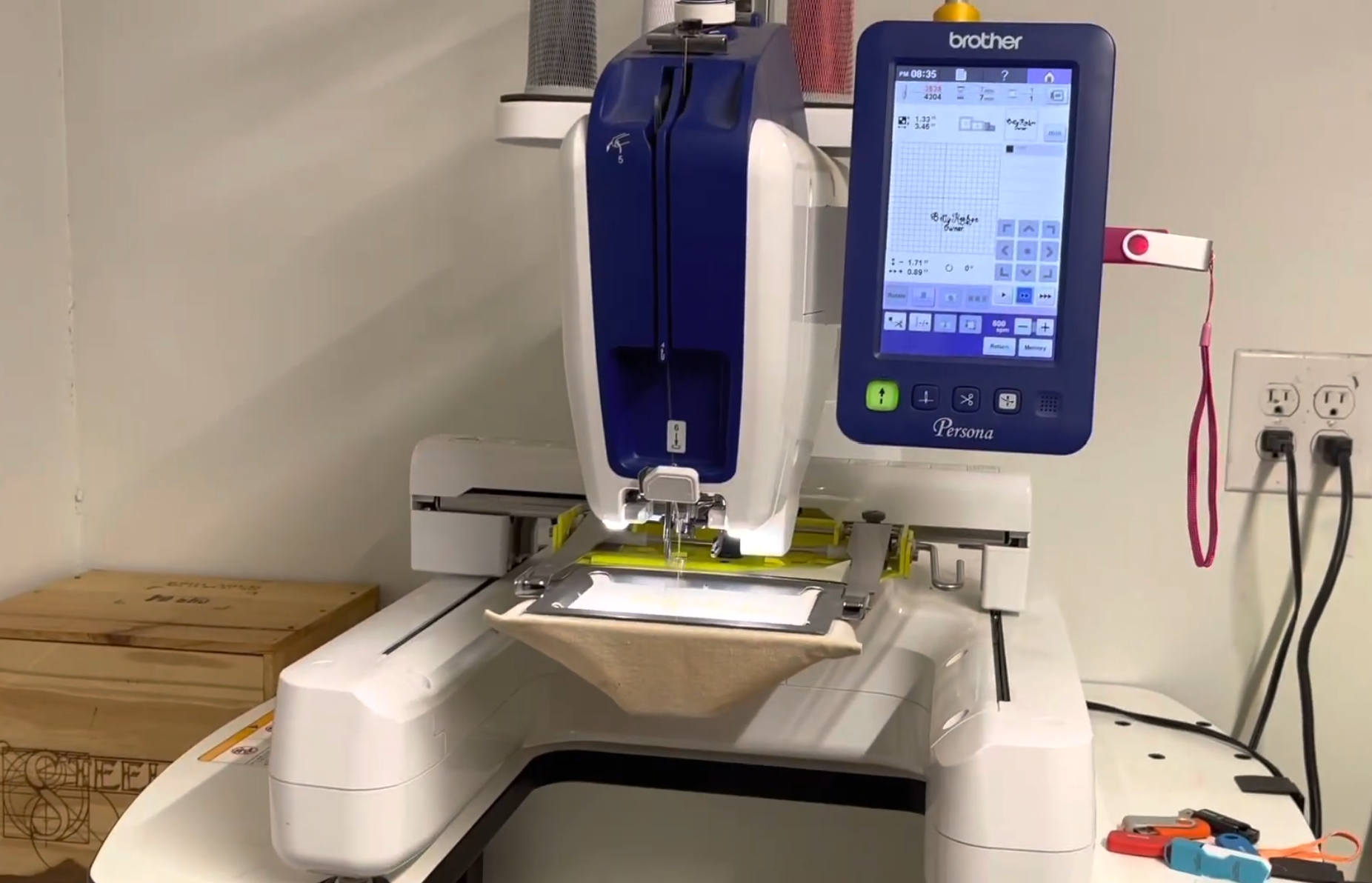
8″ x 8″
Janome 400E
(Most affordable)
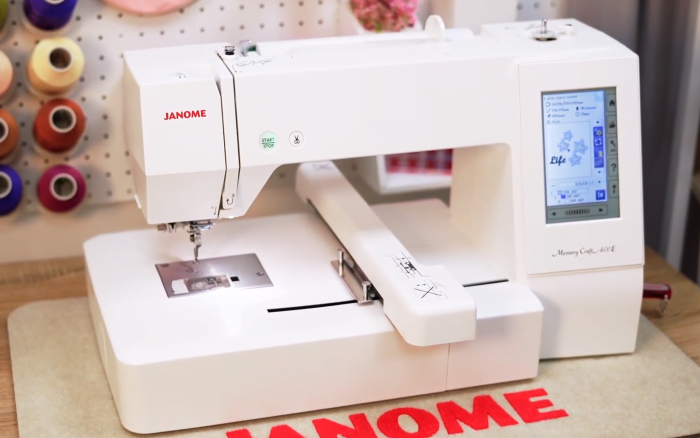
7.9″ x 7.9″
Avoid combination machines
You will almost always pay more money for these machines, and they just won’t be as good as dedicated embroidery machines.
If you do happen to also need a sewing machine, it’s almost always a better option to get a separate machine that is made to do just one job. Decent sewing machines can be had fairly cheap, so don’t limit your embroidery trying to get a two-for-one – you’re only cheating yourself.
If you have your heart set on a combination machine, then the Bernette B79 is decent. You’ll get a 6″ x 10″ embroidery area, sewing capabilities, and lots of great features for just shy of $2,000.
Which is at little smaller than what’s offered by the Janome 500E, but not bad.
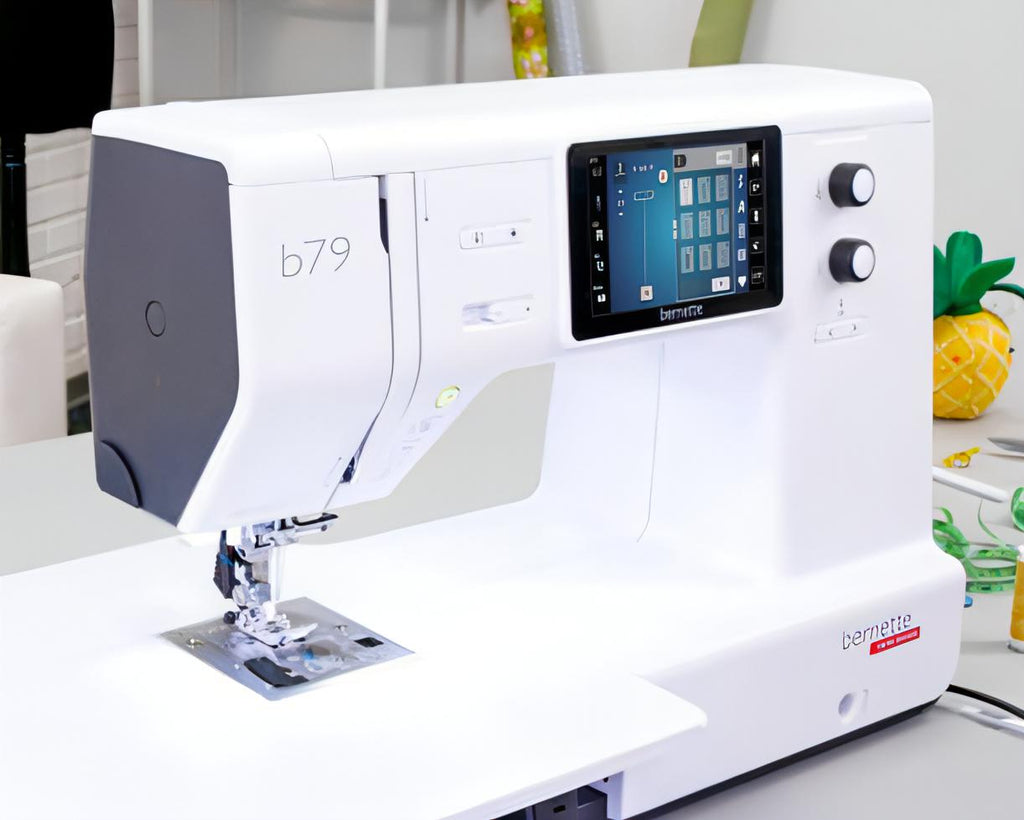
Editor’s Pick: Bernette B79
The Bernette B79 has a lot of great features, including a large touch screen, convenient adjustment knobs, 9 inches of throat space, 6″ x 10″ embroidery and tons of sewing features.
Are you buying a trusted brand?
Embroidery machines can be very expensive, leading some people to purchase cheaper, lesser-known brands, or Chinese knock-off machines.
While this seems like a good deal at the time, the purchaser quickly finds these machines do not have the same kind of longevity that bigger name-brand machines have.
Many of them also have non-existent support, and the parent company can vanish overnight. This leaves you without assistance when a problem pops up. Plus, finding parts or techs willing to service them is difficult.

For that reason, I’d recommend you stick with well-known name brands. For consumer use, Brother, Baby Lock, and Janome offer quality machines with good availability for parts, accessories, support, and service.
In the world of commercial machines, Tajima is pretty much the top dog and business owners rave about the quality of their machines to anyone who will listen.
However, Melco and SWF also make quality machines. All three brands stand behind their machines and the availability of parts, service, and support is excellent.
Will you ever need to sell your machine?
This will likely not be your last embroidery machine purchase, particularly if you’re trying to start a business.
People outgrow their machines, sell or trade them, and then move on to the next tier. With some machines though, this may not be as easy of a task as you’d hope.
Many dealers won’t touch any of the cheaper Chinese machines due to their notorious unreliability.
That means if you buy one of these machines, it could make it very difficult for you to re-sell or trade it in later. Brands in this category include Ricoma, Yamata, Bai, etc.
In most cases, even the parent company will not buy back these machines. However, you will never have trouble selling a quality machine like a Tajima or Melco, even if it needs repairs. So, keep that in mind.
What to do instead of buying a knock off
If the machine you need is simply not in the budget, then you do have a couple of options.
Look for a Refurbished Model
If you can afford to wait, this is the best way to save money. As previously stated, people upgrade all the time and when they do they will sell their old machine at a discount.
However, this is often easier said than done. Especially if you’re looking for a highly desirable machine, like a used multi-needle. Be ready to check for listings religiously and to pounce when opportunity strikes.
Some online dealers offer opportunities for refurbished units that come with warranties and have been professionally services, but be aware you could be waiting a long time for one to pop up, especially if you have your heart set on a specific machine.
Check used embroidery machines at Sewing Machines Plus
PS. Be wary when buying second hand from an individual on Craigslist or Facebook Marketplace. You have no idea how well the machine has been cared for, or how often, if ever, it has been serviced.
Do your homework before you hand over any cash, and if the seller won’t let you test the machine – run.
Get financing
Purchasing a machine for your home business? Then financing could be a better option. This allows you to get exactly the machine you need while spreading the payments out over time.
In many cases, you can get this directly from the dealer and you won’t pay interest. That’s why if you’re already selling items and making a profit, this approach makes the most sense.
Beware of counterfeit machines
Any machine your purchase on Alibaba or Aliexpress is a fake. Even if it says it is a name brand, they are lying. They are not authorized resellers and you will get a big box of junk delivered to your door, or maybe even nothing at all!
This is typically where people get the knock-off Chinese machines and while most people do know they are buying a knock-off, there are also counterfeit machines and scam listings marketed as the real deal to unsuspecting customers.

No matter what they say, these sellers do not have legitimate Tajima, Brother, or any other name-brand machines for sale. They will use pictures that look legit, but you are not getting that machine, and you’ll have little chance of getting your money back from across the globe.
Buying from a reputable dealer like Sewing Machines Plus which has real relationships with these manufacturers ensures you receive a legitimate product and not a fake.
Ask yourself, is this deal too good to be true? If it’s too cheap, then it’s most likely a fake.
Hopefully, this overview gave you a few things to think about, and I hope it helped you, even a little, to decide on your new dream embroidery machine.
Happy Crafting!
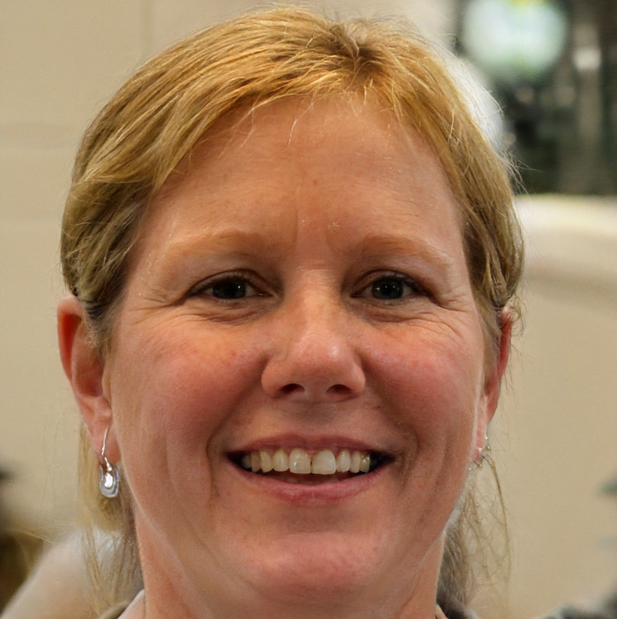
Barb, our resident quilter and embroidery aficionado, weaves a thread of creativity through our collection. Serving as the curator of machine embroidery content, Barb infuses each design with a touch of her artistic expertise. The free embroidery patterns you discover on our site often bear the mark of Barb’s craftsmanship. Let’s get crafting!




